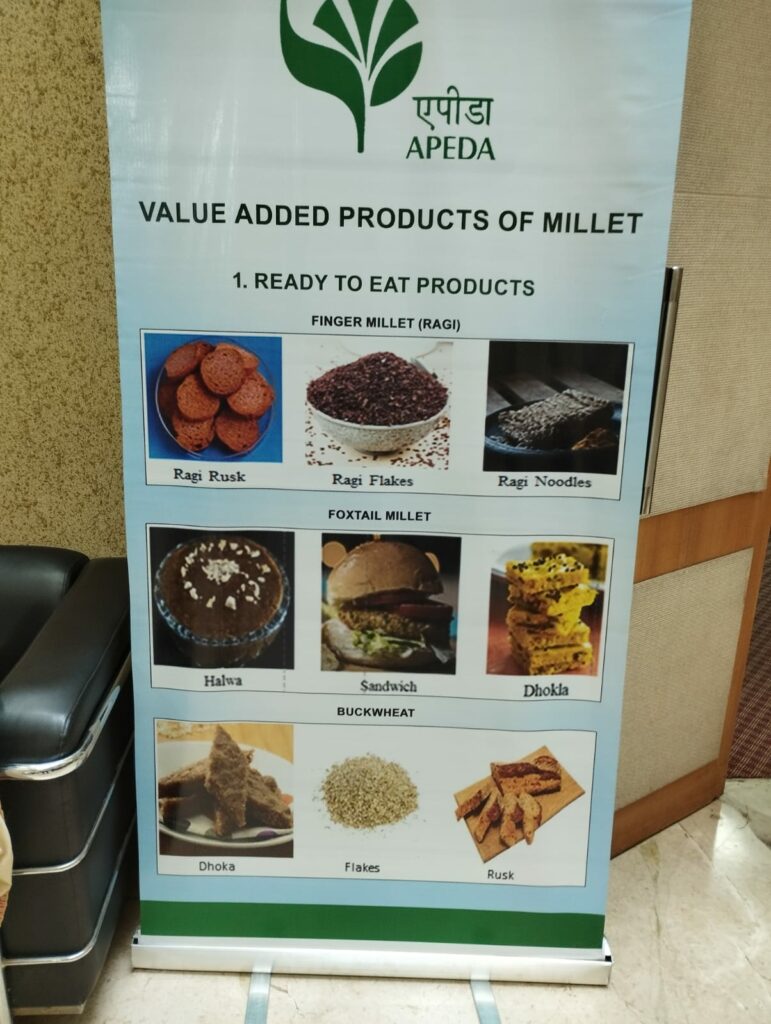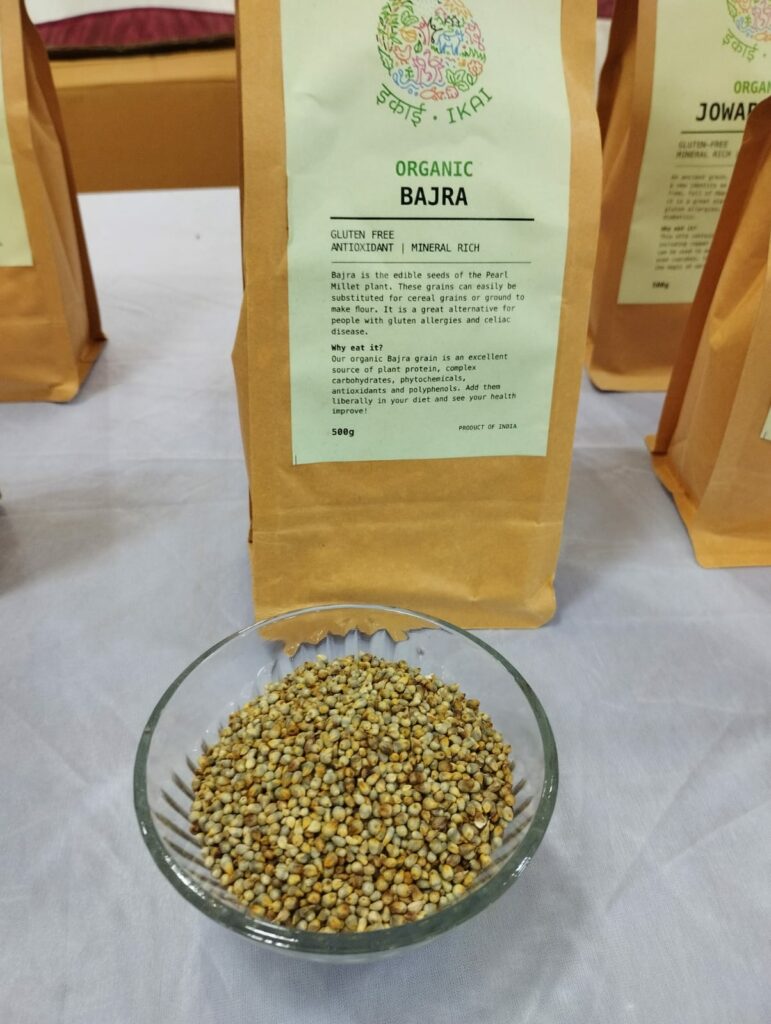
The Agricultural and Processed Food Products Export Development Authority (APEDA) in association with the Federation of Industry and Commerce of Northeastern Region ( FINER) has organized an awareness program on Millet Exports cum buyer seller meets at the Northeastern Development Finance Corporation Limited (NEDFi) Convention Centre on November 8 in Guwahati.
Deputy General Manager, APEDA Sunita Rai, highlighted the importance of producing millet in a “focused and strategic way”.
Notably, based on its quality and value the United Nations has declared 2023 as the International Year of Millet.
She said that India is among the top five exporters of millet in the world. "It is important to emphasize the value-added production of millet."
For creating awareness about the importance of millet, APEDA has created a Nutri cereal forum.

Many other states like Rajasthan, Karnataka, and Maharashtra have pioneered in millet production but Assam is lagging behind due to lack of awareness among the people. Chief Minister Himanta Biswa Sarma has given special emphasis on millet production in the state. In fact, Assam is the first state to launch Assam Millet Mission.
FINER local entrepreneur, Nalin Jain, a guest, added that till now he is procuring millet from Bengal and other places. But he said that Assam can be an exporter of millet if emphasise is laid on growing the crop here.
Regional Director of National Co-operative Development Corporation (NCDC), Sebastian Joseph, said that to help the farmers they have developed a Farmer Producer Organization (FPO) which is unique from the previous FPOs. According to their research, some of the important districts producing millet in Assam are Barpeta, Nagaon and Goalpara. The farmers of these districts shall be connected with the FPOs. The new FPOs will have a qualified Chief Executive Officer (CEO), a contact person and an accountant. The membership fees to join these FPOs will be Rs. 2000. In organizing all these activities, they will be helped by professional bodies like the Assam Agricultural University.
The Chief Guest of the occasion, Jyotish Talukdar, stated that APEDA has many challenges like its small size, low volume expo, lack of agri processing and post harvesting facility and lack of marketing facility, etc. But, in spite of all the challenges APEDA is now focusing on marketing of new products and new destinations.
Regarding Millet production in the country, he said that the crop has an affinity with Indian culture as well.

CM Sarma has initiated for celebrating 2023 the International Year of Millet and declaring the Assam Millet Mission for seven years. In this way, his dream will be realised and the mission will be accomplished.
The program was followed by technical sessions from APEDA, National Institute of Food Technology Entrepreneurship and Management (NIFTEM) and Assam Agri-Business and Rural Transformation Project (APART), Department of Agriculture, Government of Assam followed by Buyer Seller Meet.
Agriculture Extension Expert, APART, Department of Agriculture, Gunin Roy stated that as many as 15 districts of Assam are selected for millet cultivation, namely, Nagaon, Bongaigaon, Dhubri, Morigaon, Barpeta, Tinsukia, Kokrajhar, Baksa, Goalpara, Karbi Anglong, Kamrup (Rural), Sonitpur, Jorhat, Golaghat and Udalguri. He added that farmers will be given seeds to grow with technical training. Till now there are 120 Farmer Producer Companies (FPCs) in Assam. APART will be adding 80 more FPCs this year for the success of the project. The Government of Assam has ordered to form 500 more FPCs in the state.
According to Roy, Millet will give food security, nutritional security, safety from diseases and economic security. Importance for this will be given to the processing industry to popularize millet production. Millets will be included in the Mid-Day Meal Scheme and for distributing to pregnant women.
India’s share in millet export is as high as 37.52 percent. The total revenue by export is USD 64. 28 million in the financia year 2021-2022 .
The countries where India is exporting millets are United Arab Emirates, Saudi Arab, Nepal, United States of America, Japan, Germany, Bangladesh, Egypt, Iran, Oman and other countries.
Discussing on the Value added Products of Millet, Assistant Professor of National Institute of Food Technology, Entrepreneurship and Management, Goutam Das enlightened the attendees by revealing that India has no problem in food production. But, off late there is a significant change in the Indian agricultural production system. There is a shift of emphasis on cultivation of traditional food grains to commercial food grains. Therefore, there is a challenge to nutritional security due to this shift. Both the Centre and State have accordingly given importance to nutritious food production. Based on that Millet production is emphasized. Millet can provide food security, fodder supply and many such things. In India, Millet is cultivated in 18 states. However, all the northeastern states are not uniformly cultivable. It is because there is not one specific but various types of Millets. The consumption pattern of Millets is declined (75 percent in urban and 87 percent in rural). India’s Millet Mission comes under the National Food Security Mission of 2007.
The presentation was well received by the farmers present. A farmer from Boko, Nurul Islam informed that even their parents had known the importance of millets. But, now they produce Eri, pulses, Maize, Chillies, Mustard, Vegetables, etc. But now they are thinking of millet production looking at its benefits.
The distinguished guests for the event included Deputy General Manager APEDA, Sunita Rai, APEDA Authority Member for Northeast Region Jyotish Talukdar, Member of the Agri and Food Processing Committee, FINER Saurabh Khetan, , and Assistant Director, FINER, Mayuri Bora. More than 150 growers and exporters attended the program.
ALSO READ : Centre releases instalments of tax devolution to states